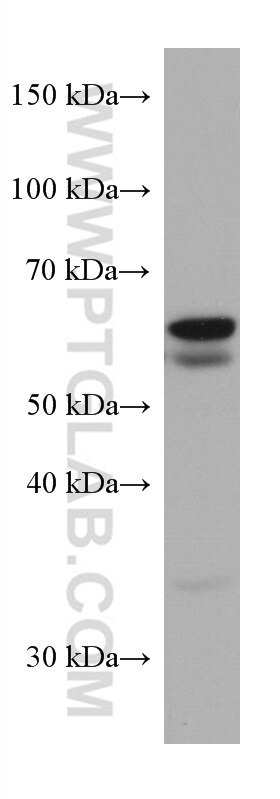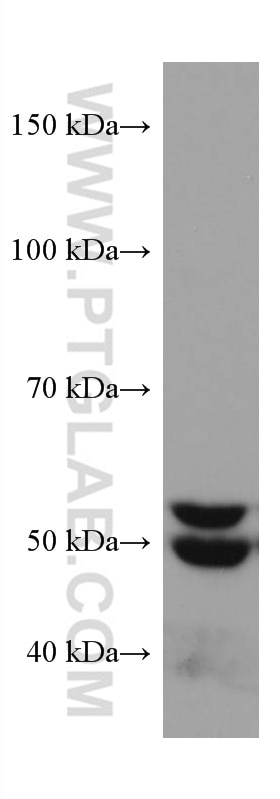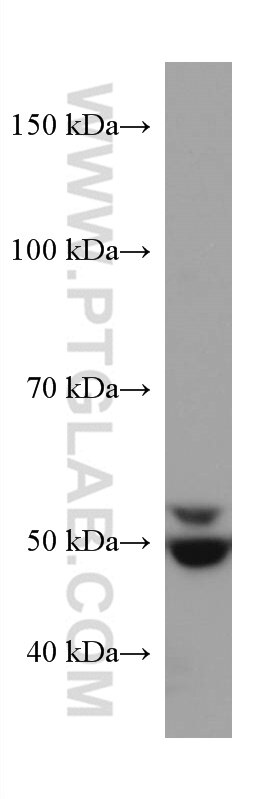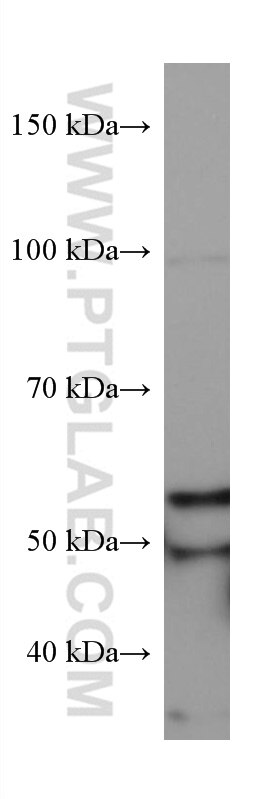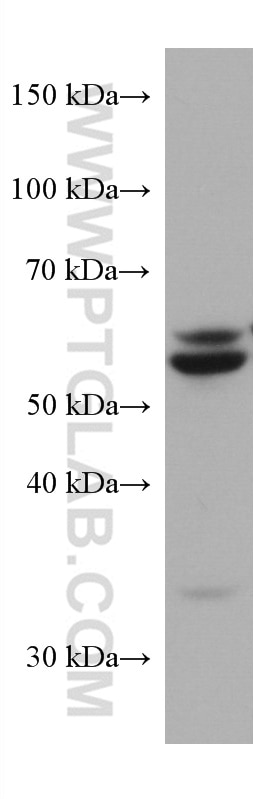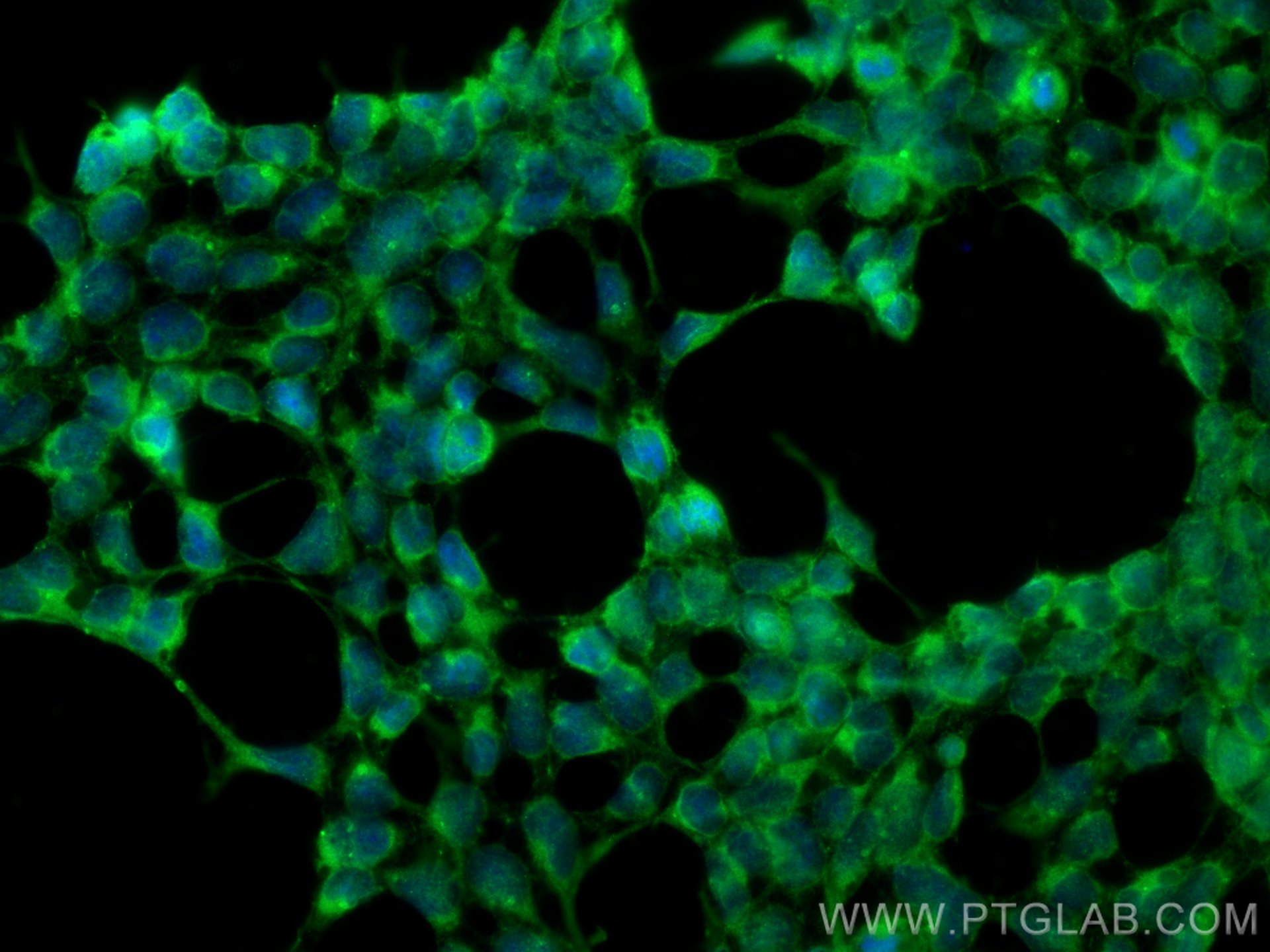SQLE Monoklonaler Antikörper
SQLE Monoklonal Antikörper für IF, WB, ELISA
Wirt / Isotyp
Maus / IgG2a
Getestete Reaktivität
Hausschwein, human, Ratte und mehr (1)
Anwendung
WB, IF, ELISA
Konjugation
Unkonjugiert
CloneNo.
1C9A2
Kat-Nr. : 67206-1-Ig
Synonyme
Galerie der Validierungsdaten
Geprüfte Anwendungen
| Erfolgreiche Detektion in WB | A549-Zellen, HEK-293-Zellen, HepG2-Zellen, L02-Zellen |
| Erfolgreiche Detektion in IF | HEK-293-Zellen |
Empfohlene Verdünnung
| Anwendung | Verdünnung |
|---|---|
| Western Blot (WB) | WB : 1:2000-1:10000 |
| Immunfluoreszenz (IF) | IF : 1:400-1:1600 |
| It is recommended that this reagent should be titrated in each testing system to obtain optimal results. | |
| Sample-dependent, check data in validation data gallery | |
Veröffentlichte Anwendungen
| KD/KO | See 1 publications below |
| WB | See 1 publications below |
| IF | See 1 publications below |
Produktinformation
67206-1-Ig bindet in WB, IF, ELISA SQLE und zeigt Reaktivität mit Hausschwein, human, Ratten
| Getestete Reaktivität | Hausschwein, human, Ratte |
| In Publikationen genannte Reaktivität | Maus |
| Wirt / Isotyp | Maus / IgG2a |
| Klonalität | Monoklonal |
| Typ | Antikörper |
| Immunogen | SQLE fusion protein Ag3266 |
| Vollständiger Name | squalene epoxidase |
| Berechnetes Molekulargewicht | 574 aa, 64 kDa |
| Beobachtetes Molekulargewicht | 50-64 kDa |
| GenBank-Zugangsnummer | BC017033 |
| Gene symbol | SQLE |
| Gene ID (NCBI) | 6713 |
| Konjugation | Unkonjugiert |
| Form | Liquid |
| Reinigungsmethode | Protein-A-Reinigung |
| Lagerungspuffer | PBS mit 0.02% Natriumazid und 50% Glycerin pH 7.3. |
| Lagerungsbedingungen | Bei -20°C lagern. Nach dem Versand ein Jahr lang stabil Aliquotieren ist bei -20oC Lagerung nicht notwendig. 20ul Größen enthalten 0,1% BSA. |
Hintergrundinformationen
SQLE, also named as ERG1, SE and SM, belongs to the squalene monooxygenase family. It catalyzes the first oxygenation step in cholesterol synthesis, acting on squalene before cyclization into the basic steroid structure. SQLE may serve as a flux-controlling enzyme beyond 3-hydroxy-3-methylglutaryl-coenzyme A reductase (HMGR, considered as rate limiting). It is also posttranslationally regulated by cholesterol-dependent proteasomal degradation. SQLE is subject to feedback regulation via cholesterol-induced degradation, which depends on its lipid-sensing N terminal regulatory domain. Truncation of SQLE occurs during its endoplasmic reticulum-associated degradation and requires the proteasome, which partially degrades the SQLE N-terminus and eliminates cholesterol-sensing elements within this region. The MW of SQLE is about 50-64 kDa. (PMID:21356516, PMID: 28972164)
Protokolle
| Produktspezifische Protokolle | |
|---|---|
| WB protocol for SQLE antibody 67206-1-Ig | Protokoll herunterladen |
| IF protocol for SQLE antibody 67206-1-Ig | Protokoll herunterladen |
| Standard-Protokolle | |
|---|---|
| Klicken Sie hier, um unsere Standardprotokolle anzuzeigen |
Publikationen
| Species | Application | Title |
|---|---|---|
Adv Sci (Weinh) Targeting Squalene Epoxidase Confers Metabolic Vulnerability and Overcomes Chemoresistance in HNSCC | ||
Cell Signal Knockdown of SQLE promotes CD8+ T cell infiltration in the tumor microenvironment
|
Rezensionen
The reviews below have been submitted by verified Proteintech customers who received an incentive forproviding their feedback.
FH Boyan (Verified Customer) (11-24-2022) | Detected a band around the expected molecular weight, but with some other background bands.
|
